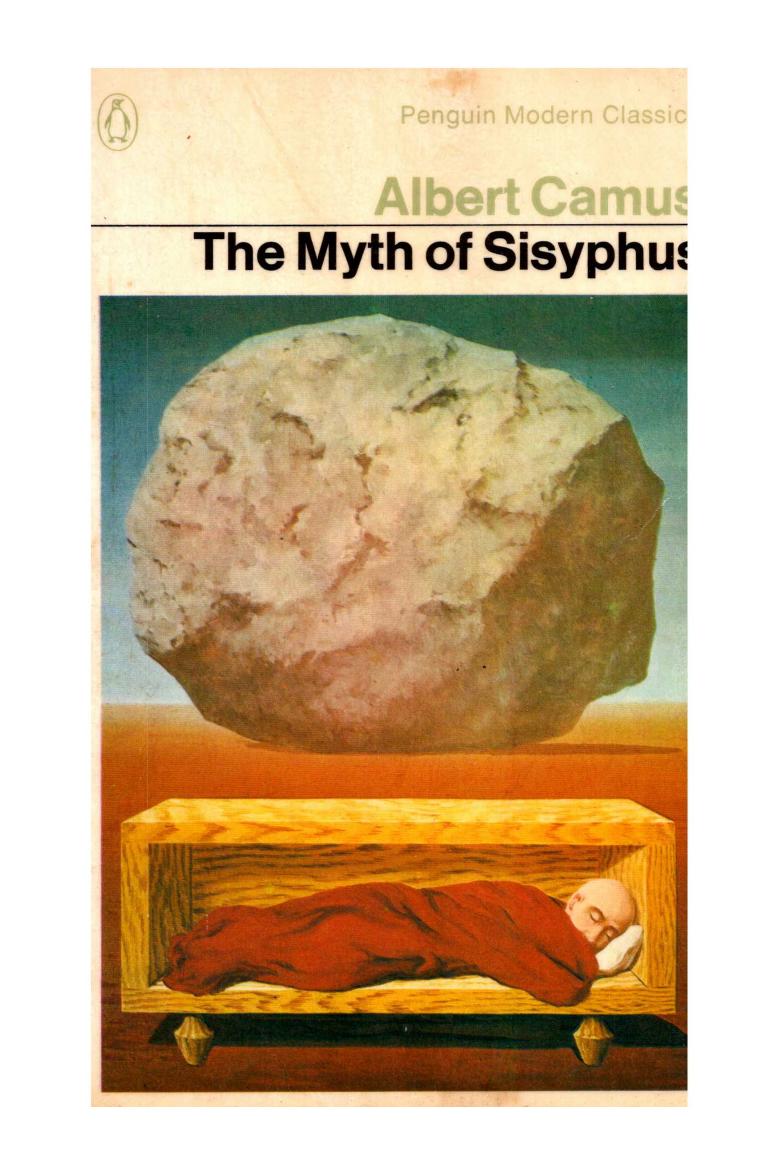The Myth of Sisyphus by Albert Camus

Author:Albert Camus [Camus, Albert]
Language: eng
Format: epub, pdf
ISBN: 978-0-307-82782-1
Publisher: Knopf Doubleday Publishing Group
Published: 2012-07-17T16:00:00+00:00
Kirilov
All of Dostoevsky’s heroes question themselves as to the meaning of life. In this they are modern: they do not fear ridicule. What distinguishes modern sensibility from classical sensibility is that the latter thrives on moral problems and the former on metaphysical problems. In Dostoevsky’s novels the question is propounded with such intensity that it can only invite extreme solutions. Existence is illusory or it is eternal. If Dostoevsky were satisfied with this inquiry, he would be a philosopher. But he illustrates the consequences that such intellectual pastimes may have in a man’s life, and in this regard he is an artist. Among those consequences, his attention is arrested particularly by the last one, which he himself calls logical suicide in his Diary of a Writer. In the installments for December 1876, indeed, he imagines the reasoning of “logical suicide.” Convinced that human existence is an utter absurdity for anyone without faith in immortality, the desperate man comes to the following conclusions:
“Since in reply to my questions about happiness, I am told, through the intermediary of my consciousness, that I cannot be happy except in harmony with the great all, which I cannot conceive and shall never be in a position to conceive, it is evident …”
“Since, finally, in this connection, I assume both the role of the plaintiff and that of the defendant, of the accused and of the judge, and since I consider this comedy perpetrated by nature altogether stupid, and since I even deem it humiliating for me to deign to play it …”
“In my indisputable capacity of plaintiff and defendant, of judge and accused, I condemn that nature which, with such impudent nerve, brought me into being in order to suffer— I condemn it to be annihilated with me.”
There remains a little humor in that position. This suicide kills himself because, on the metaphysical plane, he is vexed. In a certain sense he is taking his revenge. This is his way of proving that he “will not be had.” It is known, however, that the same theme is embodied, but with the most wonderful generality, in Kirilov of The Possessed, likewise an advocate of logical suicide. Kirilov the engineer declares somewhere that he wants to take his own life because it “is his idea.” Obviously the word must be taken in its proper sense. It is for an idea, a thought, that he is getting ready for death. This is the superior suicide. Progressively, in a series of scenes in which Kirilov’s mask is gradually illuminated, the fatal thought driving him is revealed to us. The engineer, in fact, goes back to the arguments of the Diary. He feels that God is necessary and that he must exist. But he knows that he does not and cannot exist. “Why do you not realize,” he exclaims, “that this is sufficient reason for killing oneself?” That attitude involves likewise for him some of the absurd consequences. Through indifference he accepts letting his suicide be used to the advantage of a cause he despises.
Download
This site does not store any files on its server. We only index and link to content provided by other sites. Please contact the content providers to delete copyright contents if any and email us, we'll remove relevant links or contents immediately.
The Hating Game by Sally Thorne(17521)
The Universe of Us by Lang Leav(14388)
Sad Girls by Lang Leav(13366)
The Lover by Duras Marguerite(7138)
Smoke & Mirrors by Michael Faudet(5520)
The Rosie Project by Graeme Simsion(5203)
The Shadow Of The Wind by Carlos Ruiz Zafón(4951)
Big Little Lies by Liane Moriarty(4894)
The Poppy War by R. F. Kuang(4466)
Memories by Lang Leav(4179)
What Alice Forgot by Liane Moriarty(3930)
An Echo of Things to Come by James Islington(3855)
From Sand and Ash by Amy Harmon(3697)
The Poetry of Pablo Neruda by Pablo Neruda(3375)
The Tattooist of Auschwitz by Heather Morris(3266)
Guild Hunters Novels 1-4 by Nalini Singh(2944)
Ficciones by Jorge Luis Borges(2876)
THE ONE YOU CANNOT HAVE by Shenoy Preeti(2831)
The Rosie Effect by Graeme Simsion(2717)
